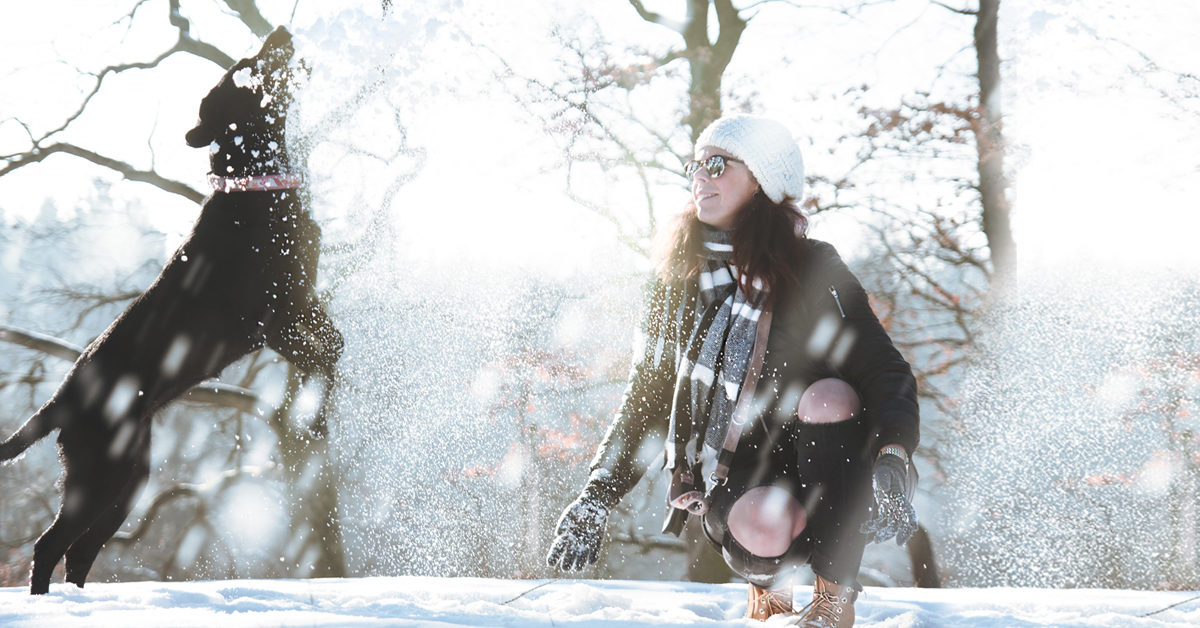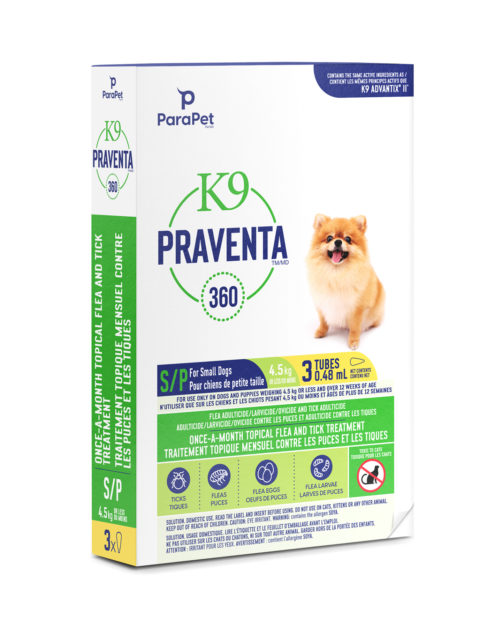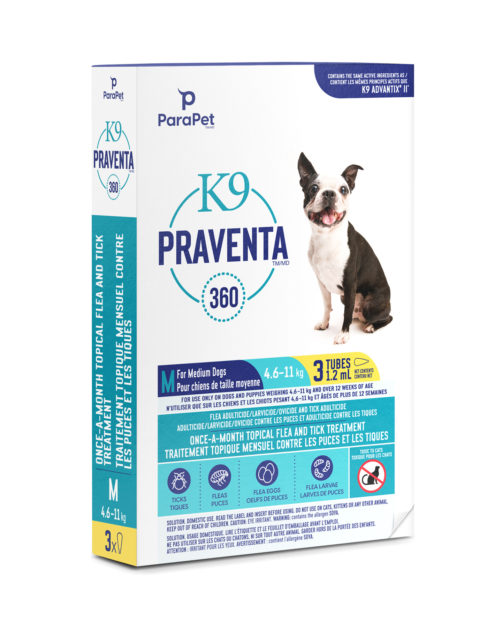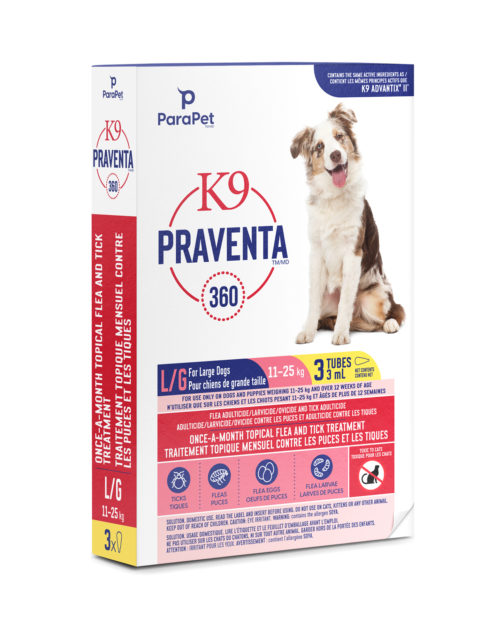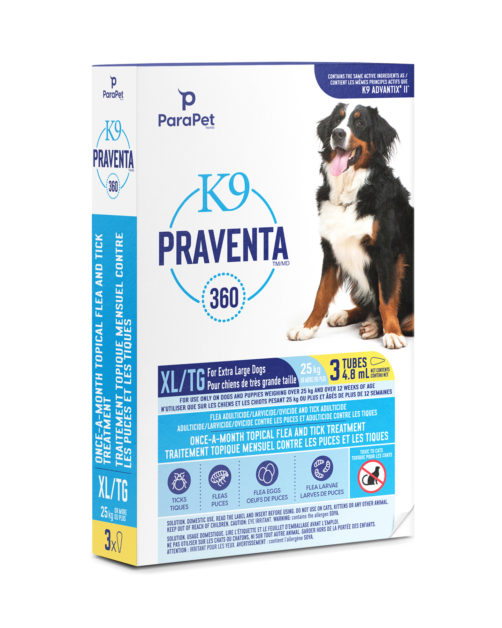Can your dog get fleas and ticks in the winter? The answer is yes!
We normally associate fleas and ticks with warm weather but just because the days are getting colder, it doesn’t mean your dog is in the clear. It only makes sense that when the temperature drops fleas and ticks, like other bugs and insects, disappear. But don’t let the cold – and snow – fool you! Any season can be flea and tick season.
TICKS
Even though ticks cannot survive sustained below-freezing temperatures, it doesn’t necessarily mean that they die in winter. Instead, they go into a dormant state. As winter approaches and the weather gets colder, ticks begin looking for somewhere to hunker down and hide, usually under leaf litter and debris. The falling snow acts as insulation keeping ticks warm while they are protected by the leaves. As soon as the temperature rises above 0⁰C, even if there’s snow on the ground, ticks are active, looking for their next meal.
Ticks are opportunists and will hitch a ride on your pet as it walks by, eventually entering your home, staying warm and feeding on your pet.
FLEAS
Fleas are the most common external parasite that affect dogs. They are prolific breeders – a single female can lay up to 50 eggs in a day and 2,000 in its lifetime! It’s easy to understand how an infestation can quickly get out of hand.
Fleas can’t survive in temperatures below freezing. But as it gets colder outside they patiently wait for a warm-blooded host to walk by so they can hitch a ride and make their way into your home where it’s nice and warm. Fleas enjoy warm, humid conditions making your home the perfect environment for them to thrive.
Fleas lay their eggs on your pet and eggs can fall onto the floor or other surfaces in the home as your dog moves around. Once the eggs have hatched, flea larvae spin silk-like cocoons, creating a sticky shell that protects them as they develop into adulthood. This process takes one to two weeks, but adult fleas will remain in their cocoon (for weeks or even months) until it’s warm enough for them to emerge and they find a host close enough for them to jump on.
PROTECTION = PREVENTION
It’s important to be aware that the cold weather does not mean your pet’s risk for fleas and ticks – and the diseases associated with them – is reduced. Protecting your dog from these parasites even through the winter is key to your pet – and your home – remaining healthy, happy and flea and tick-free.
